What is the best grade of Rosa coffee? is it expensive? the flavor and taste characteristics of Rosa coffee bean story.
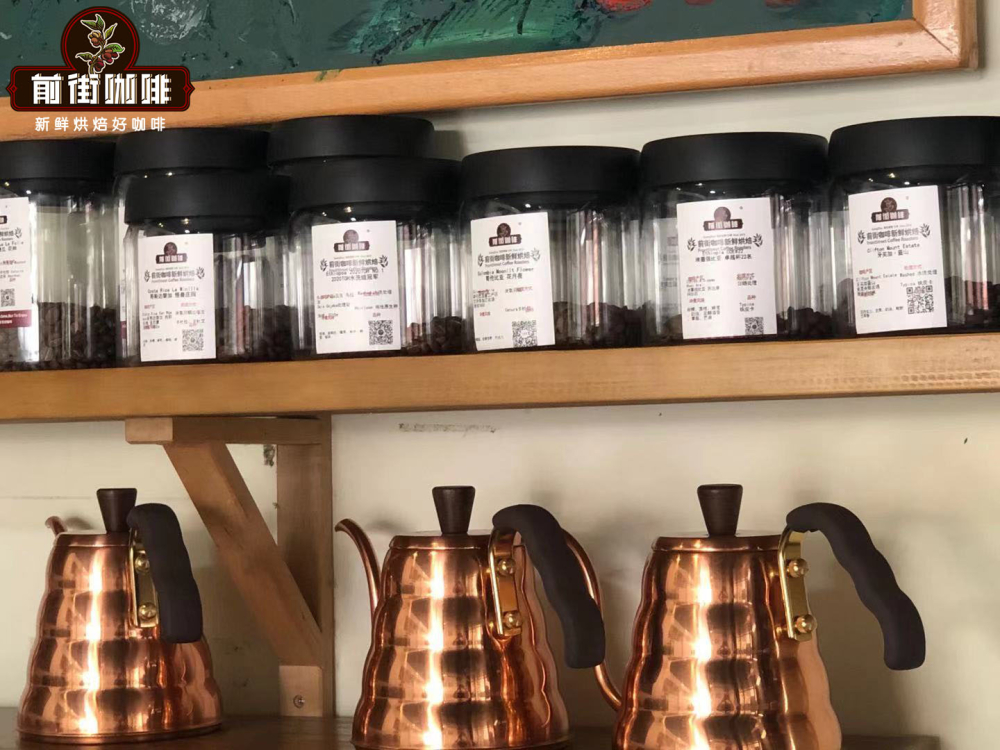
Rosa coffee has a full sweet taste, extremely clean taste, rich aromas have spread from berries and citrus to mango, papaya and peach flavors. A very obvious lemon (bergamot) general aftertaste is also a typical cup test attribute. So far, Rosa Coffee has been the champion of coffee varieties.
History
In 1931, it was obscure from Mount Geisha Mountain in southwestern Ethiopia, which happens to be synonymous with Japanese geisha, to Kenya and Tanzania, where it was later incorporated as T2722 by the CATIE Agricultural Research Institute in Costa Rica. After being transplanted to Panama in the 1960s, it took nearly half a century to become a blockbuster, defeating the victorious armies such as Bourbon, Kaddura, Kaduai, Tibica, and so on, and won the first prize of the Panamanian National Bean Cup Test Competition in 2005, 2006 and 2007. In 2007, the International famous Bean Cup Test sponsored by the American Fine Coffee Association (SCAA) won the championship again, and the bidding price was sold at US $130 per pound, setting a record for the highest price in the history of competition beans. It is reported that the later Panamanian national treasure bean competition will be divided into two groups: Rose Summer and non-Rose Summer, so as not to be robbed of the brilliance of other varieties by Rose Summer. Rosa Coffee is a member of the Tippika family, but it has become famous more than 70 years after it left Ethiopia, and it has fulfilled the saying that Ethiopia is a treasure trove of Arabica genes. Giving any variety abroad is enough to stir up trouble in the coffee market.

Geisha coffee has been planted in many parts of the world and is the new king of boutique coffee. Among them, Panama, Guatemala, Colombia and other Latin American countries have higher quality and higher prices. As each country has its own unique customs, the flavor of Rosa coffee from different areas is also different. The most classic flavor of Rosa coffee is the Rosa coffee bean produced in Panama.
Characteristics of Rosa coffee beans
Raw beans: very beautiful blue-green, jade-like warm texture, smell of fresh grass, peach, berries and most coffee beans do not have the unique milk sweet smell of oolong tea, it seems that aroma and taste of this kind of things need to cooperate with association, but the faint smell of tea can be clearly felt.

In order to highlight the characteristics and aroma of this bean, the baking degree is on the verge of second explosion, and two explosions and one sound are more commonly used baking degrees, as mentioned earlier, it can give play to the characteristics of the bean itself, too shallow will produce miscellaneous smell. if it is too deep, it will lose the aroma of flowers and fruit acid. of course, this should be adjusted according to the characteristics of coffee beans and the roaster's understanding of the beans themselves.
Cooked beans: cooked beans that have been baked will appear to have some "wrinkles". The beans with this "sexy wrinkles" are all designed to highlight their original flavor and acidity, but if the quality of the raw beans is not high, they will produce some miscellaneous flavors, such as rotten soil, grass and dry taste, which should be avoided by bakers. Roasted Rose Summer has charming lemon and citrus aromas and super sweet honey cream flavor.
Flavor
The fragrance of flowers, tropical fruits, strong sweetness; these are the feelings that Rose Summer has always given us. Properly baked, they make you feel like sipping the fragrance of a bouquet of flowers. Perhaps you don't know the story of Rosa Coffee, an ancient native species from Ethiopia that was brought as a coffee sample to a coffee experimental garden in Costa Rica and distributed to several small farms for small-scale trials.
Not many people paid attention to Rosa coffee until one day. The Emerald Manor in Panama separated it from other varieties and won the national coffee competition.
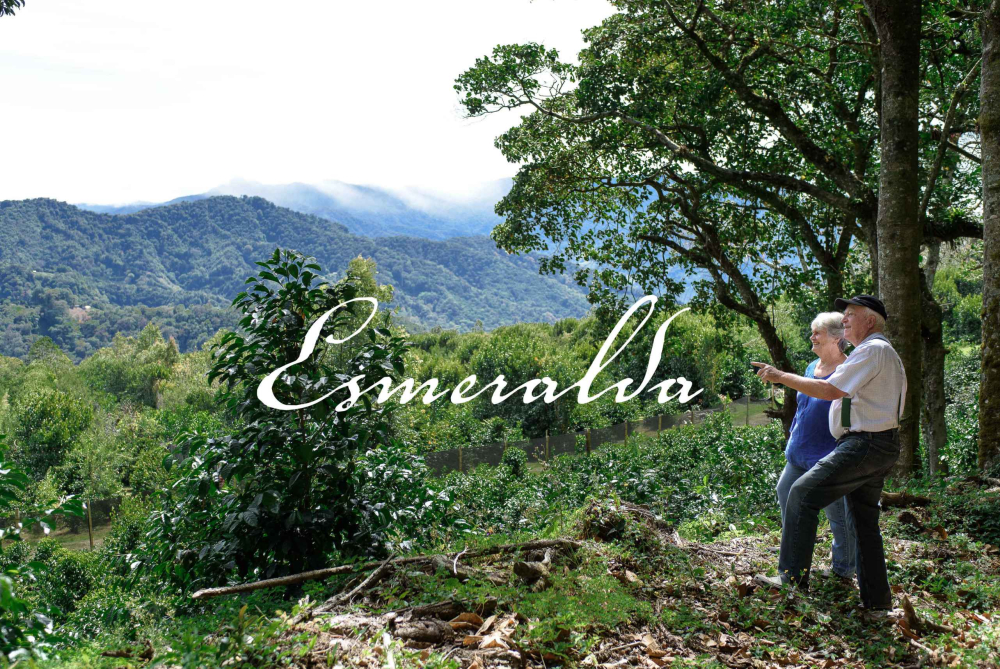
She is so extraordinary that the fruity and floral elements are like Yega Xuefei from Africa and Ethiopia on the other side of the world. Of course, these are all old news now. Some small farms also get summer roses and are eager to grow their own roses.
However, the results are different: depending on the weather, soil and altitude, this "star" variety seems to have different tastes in different geographical locations. However, in the Aktenango region, we see the typical characteristics of Rosa coffee: the slender shape of beans, the changes during roasting, and the elegant and unripe flavor in the cup.
Take the front street coffee bean list on the Panamanian Deborah Manor Savage series of rose summer coffee beans as an example.
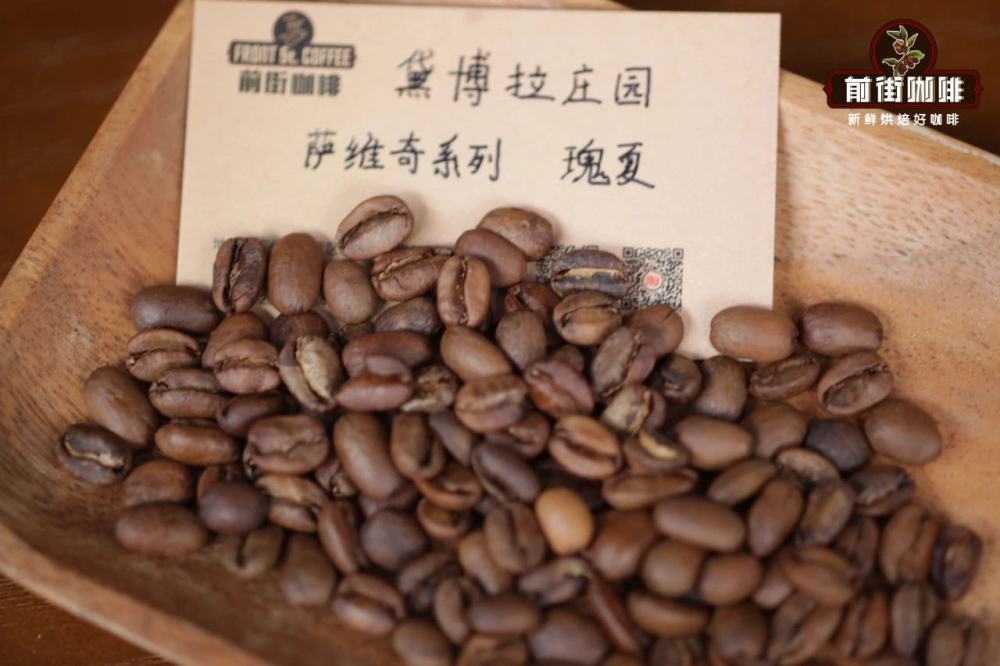
Qianjie Coffee Deborah Manor Savage Series Rose Summer
Origin: Walken producing area of Panama
Manor: Deborah Manor
Landowner: Jamison Savage
Altitude: 2000m--2350m
Variety: rose summer seed
Grade: SHB
Treatment method: oxygen-free sun treatment
Deborah Manor is one of the highest and most remote coffee farms in Panama. The rosy summer coffee trees here are planted in an area of more than 1900 meters. Due to the close proximity to the Baru volcano, the fertile fire soil, the large temperature difference between day and night, and the frequent rain and fog, the growth rate of coffee fruit in such an environment greatly slows down. At the same time, coffee fruit can have more time to absorb more nutrients.
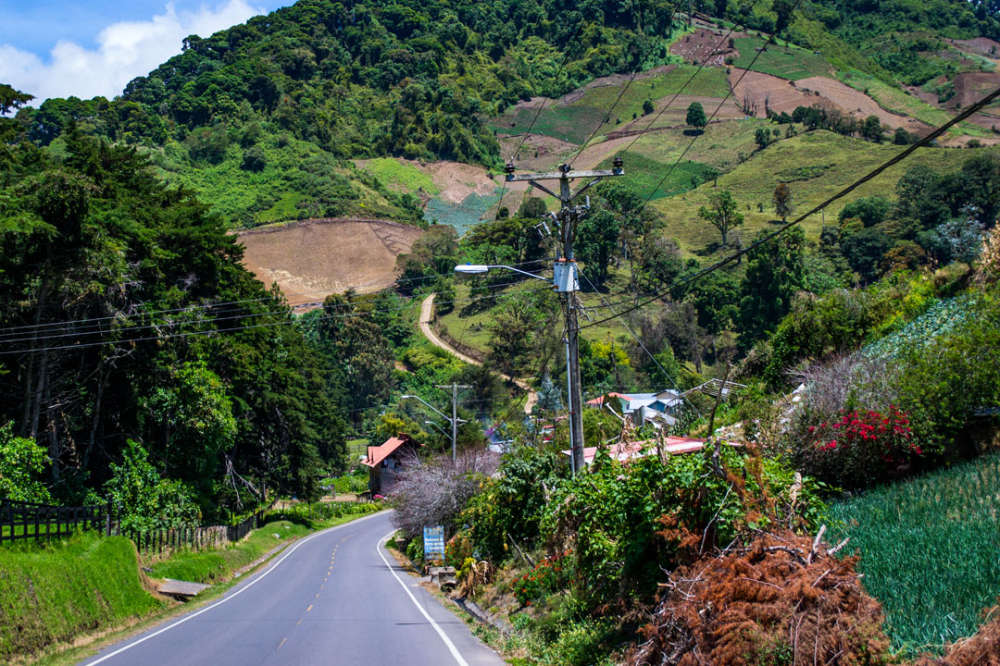
On the other hand, the Savage series of coffee is purchased by Jamison Savage, the owner of Deborah Manor, which has a similar growing environment near Deborah Manor, and then processed by the delicate post-processing of raw beans in Deborah Manor. At such a high altitude, the coffee beans planted are SHB grade very hard coffee beans, the resulting coffee must also be sour and sweet and delicious.
In order to highlight the floral and tropical fruit flavor of Panamanian Rosa coffee, Qianjie roasters used a light roasting degree when they received such high-quality coffee beans. When cooking, Qianjie recommends using a water temperature of 92 degrees Celsius, a medium and fine grinding degree and a V60 filter cup.
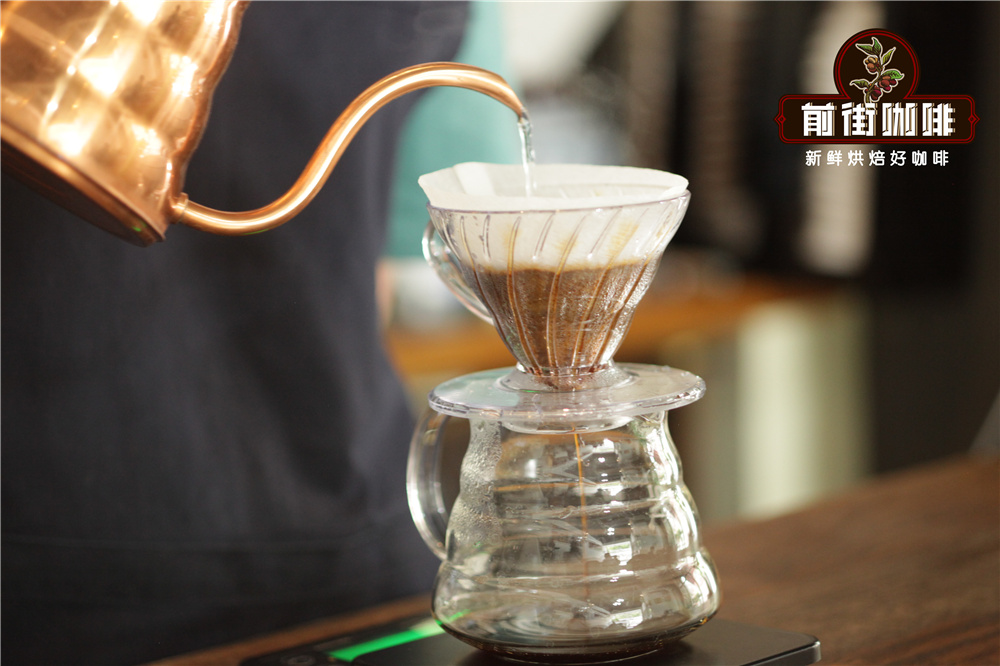
Filter cup: Hario V60
Water temperature: 92 degrees Celsius
Amount of powder: 15g
Ratio of powder to water: 1:15
Degree of grinding: the pass rate of Chinese standard No. 20 screen is 80%.
In order to show the flavor of Rosa coffee. Qianjie recommends using freshly roasted coffee beans for brewing, so that you can maximize the rich flavor of the coffee. The coffee beans shipped in Qianjie are all roasted within 5 days, because Qianjie is well aware that the freshness of coffee beans has a great impact on the flavor. The purpose of Qianjie roasting is "freshly roasted coffee", so that every guest who places an order is the freshest coffee when he receives it. The bean cultivation period of coffee is about 4-7 days, so when the guest gets it, it is the time when the flavor is the best.
In order to give the coffee a richer sense of hierarchy, Qianjie suggests using three-stage water injection for brewing. First inject 30 grams of water for steaming for 30 seconds, start from the middle and slowly circle the second section of water to 125 grams for segmentation. when you see the powder bed, continue to inject water to 225 grams, and the water in the filter cup can be completely dripped down to share the pot to remove the filter cup. the total extraction time is about 2 minutes.
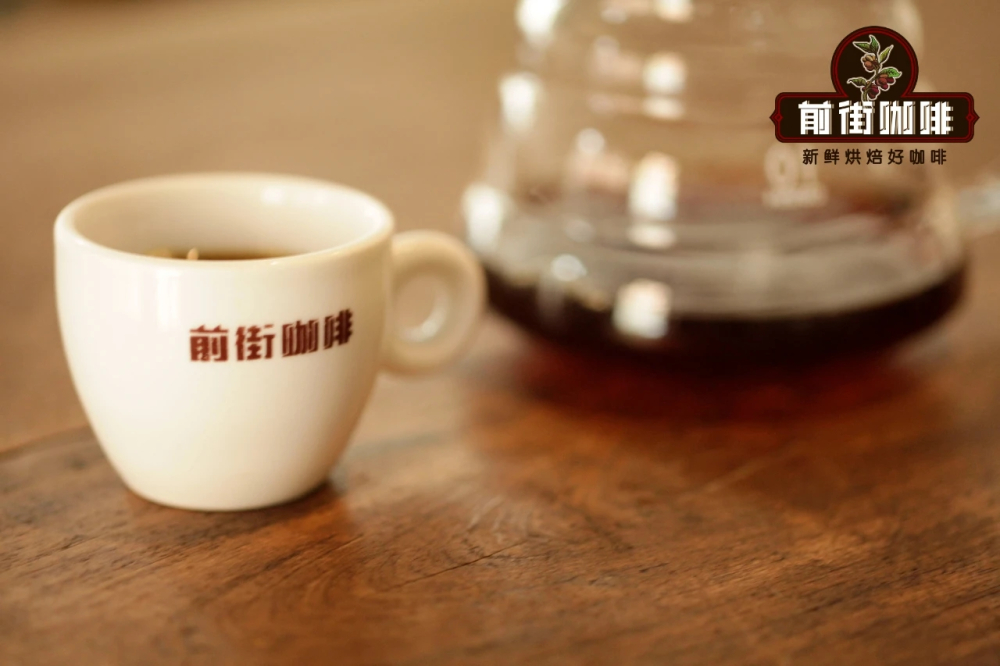
In front of the street, this Panamanian Deborah Manor Savage series of rosy summer coffee is very bright, with strong floral aromas, honey pomelo and citrus aromas, and light baked with nutty aromas. After the entrance, the aroma may be milder and more subtle than the dry fragrance, with a sense of pineapple juice, and when the temperature drops slightly, the flower and fruit flavor becomes stronger and stronger, just like the sweet and sour feeling of lactic acid drink.
For more information about coffee beans, please follow the coffee workshop (Wechat official account cafe_style) and exchange professional coffee knowledge. Please add Wechat account kaixinguoguo0925.
Important Notice :
前街咖啡 FrontStreet Coffee has moved to new addredd:
FrontStreet Coffee Address: 315,Donghua East Road,GuangZhou
Tel:020 38364473
- Prev
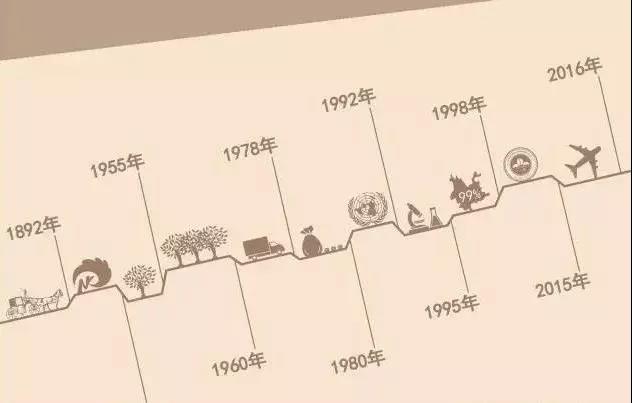
Yunnan Baoshan iron pickup | Chinese Yunnan small grain coffee Baoshan old variety iron pickup
The history of coffee cultivation in Yunnan can be traced back to 1892. A French missionary brought coffee to Yunnan from abroad and successfully planted it in a valley in Binchuan County, Yunnan Province. the main variety is Iron pickup, the so-called small-grain coffee, commonly known as Yunnan small-grain coffee. Yunnan small grain coffee, Rubiaceae, coffee genus, the planting area is mainly distributed in Lincang, Baoshan, Yunnan, China.
- Next
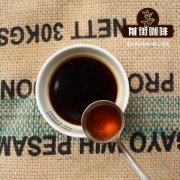
What's the difference between Rose Xia and Ye Jia Xuefei Coffee beans? description of flavor and taste characteristics of Rosa hand coffee
Professional coffee knowledge exchange more coffee bean information please follow the coffee workshop (Wechat official account cafe_style) Rose Summer Coffee, the synonym of excellence and excellence May 2017 Best Panamanian Bean Competition (TheBestofPanama/BOP) Jade Manor (Hacien)
Related
- Detailed explanation of Jadeite planting Land in Panamanian Jadeite Manor introduction to the grading system of Jadeite competitive bidding, Red bid, Green bid and Rose Summer
- Story of Coffee planting in Brenka region of Costa Rica Stonehenge Manor anaerobic heavy honey treatment of flavor mouth
- What's on the barrel of Blue Mountain Coffee beans?
- Can American coffee also pull flowers? How to use hot American style to pull out a good-looking pattern?
- Can you make a cold extract with coffee beans? What is the right proportion for cold-extracted coffee formula?
- Indonesian PWN Gold Mandrine Coffee Origin Features Flavor How to Chong? Mandolin coffee is American.
- A brief introduction to the flavor characteristics of Brazilian yellow bourbon coffee beans
- What is the effect of different water quality on the flavor of cold-extracted coffee? What kind of water is best for brewing coffee?
- Why do you think of Rose Summer whenever you mention Panamanian coffee?
- Introduction to the characteristics of authentic blue mountain coffee bean producing areas? What is the CIB Coffee Authority in Jamaica?

